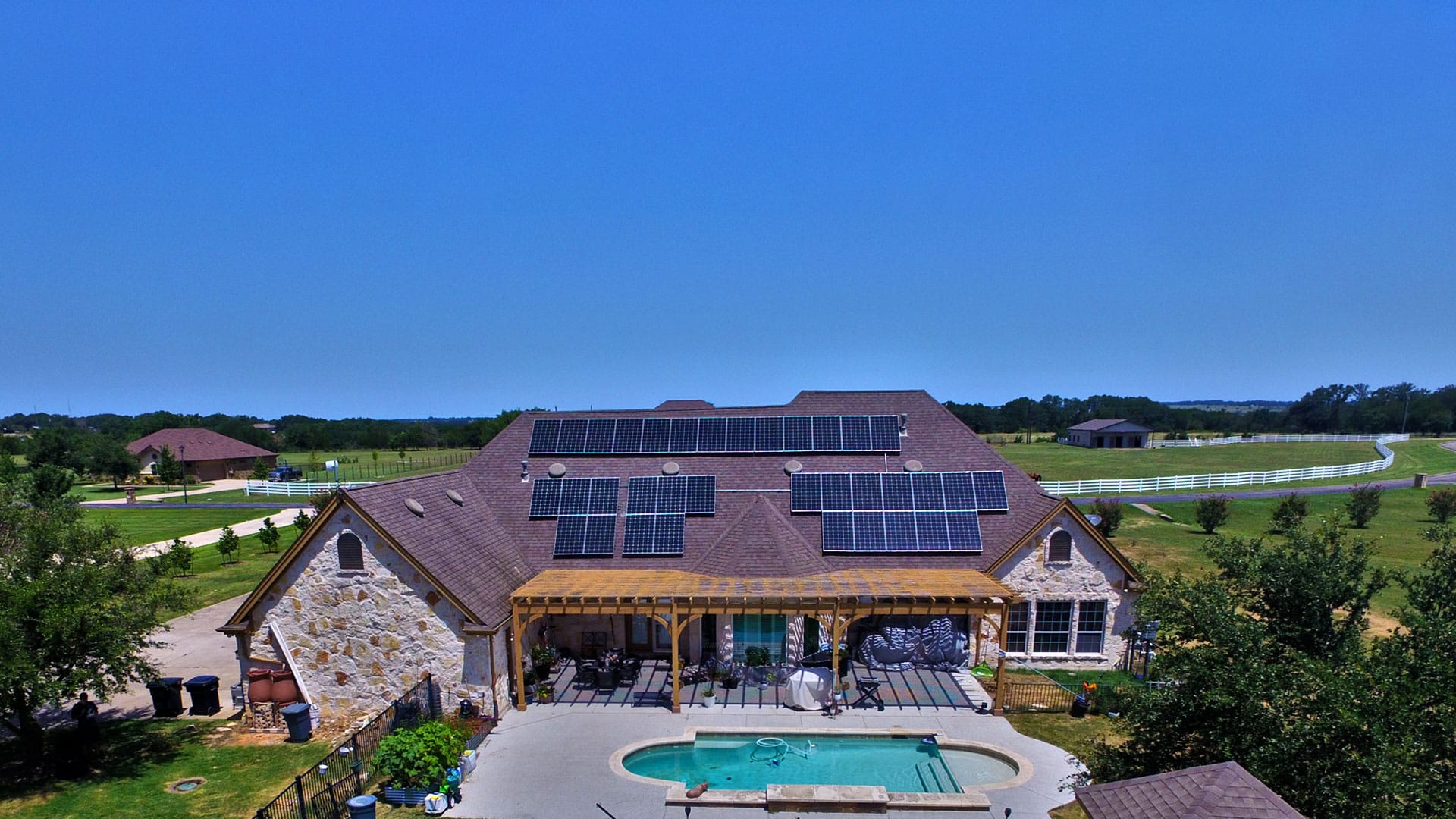
What are the Benefits of Powering My Home with Solar?
Today, there are more than two million residential and commercial solar installations in the United States. Solar accounted for 56% of all new electricity-generating capacity added in the US in the first half of 2021, and residential solar was up 2% over Q1 2021, but up 46% from Q2 2020 when installations were hit hardest by the Covid-19 pandemic. This has considerable implications for the real estate and housing construction markets as increasing numbers of buyers are interested in purchasing homes with solar PV systems. With current financing options, along with federal tax incentives and local rebates, powering your home with solar today is actually more affordable than you think (use free solar calculator), and Texans who make this leap can expect to recoup more than 90% on their investment in property value increases alone, not to mention the additional energy-saving costs that will add up over time.
See the current Solar Energy Industries Association (SEIA) Solar Data Cheat Sheet.
A move to powering your home with solar energy is tough to beat in terms of property investment. A reliable alternative energy system like solar is an intelligent investment for your home that makes a positive environmental impact. If you are brand new to solar, or just started thinking about it, see the basics of solar and its benefits for you in simple detail below.
Solar 101 for Texas Homeowners
So…What Is Solar Energy?
Wondering what solar energy actually is? Simply stated, it’s energy that comes from the sun which is converted into electricity. Solar panel installations collect the sun’s energy. The system converts that energy into usable power for the home. Excess energy can then be stored in the system’s batteries. Many municipalities and traditional electric companies now feature clean-energy programs to buy surplus solar energy from homeowners for use on their grid. If you participate in this program, you can earn passive income by selling your excess solar power to help power your community with clean solar energy.
And What Is a Solar Panel?
Solar panels, also referred to as PV panels, convert sunlight into electricity used to power homes or commercial buildings. Solar energy is the most abundant form of energy on the planet. Solar panels make it possible to harness this energy on a large scale to do things like power our lighting, refrigerators, and even our cars. Today, solar panels are designed to work just as efficiently in the summer as in the winter. Clear, sunny days are best for generating the most solar energy, but many people enjoy solar-powered systems even in northern states. In fact, one of the world’s solar energy leaders is Germany, a northern country.
How do Solar Panels and Solar PV Systems Work?
As mentioned, solar panels capture sunlight within their “solar cells.” These cells are typically made from silicon and work like semiconductors. When the solar energy photons hit the cells of a solar panel, some of their electrons become attached to the cell, forming an electrical circuit. As the electrons flow through this circuit, they produce electricity. Consequently, the more panels installed, the more electricity generation the homeowners can expect.
The solar system contains features (like the solar converter) that convert DC electricity into AC power. Battery storage stores the excess energy for use at night. Many solar-powered homes feature a solar system that also hooks up to their local energy grid. Should something happen to the solar system (a tree falls and damages the home’s solar panels, for instance), the homeowner can still rely on their local energy provider for temporary power until their panels are repaired or replaced. They can also sell their extra power to their local provider via their solar system.
Types of Solar Panels
There are several types of solar panels on the market today. As you shop for panels, you’re likely to encounter these:
- Monocrystalline Solar Panels
Monocrystalline Solar Panels are the panels most popularly chosen for rooftop installations. They boast outstanding efficiency and the most power capacity of all solar panels. Their efficiency ranges, on average, between 17% and 22%. - Polycrystalline Solar Panels
Though less efficient than monocrystalline solar panels, polycrystalline solar panels are more budget-friendly, making them popular with homeowners. Their efficiency ranges between 15% and 17%. - Passivated Emitter and Rear Cell (PERC) Panels
These modules boast an efficiency of about 20%. The technology is newer than traditional solar panels like those listed above. These panels feature an additional layer of silicon that helps trap more solar photons. - Thin-Film Solar Panels
These panels are an up-and-coming solar technology. They’re more flexible and contain solar cells that are much smaller than traditional solar panels. These panels may reach up to 25% efficiency.
Which Type of Solar Panel Should You Use?
Your property and budget will likely impact the type of solar panel you choose for your home. Each type has its advantages and disadvantages. If you have a reduced amount of space, you may want to purchase monocrystalline solar panels because of their high efficiency. On the other hand, you might opt for the less expensive polycrystalline panels if you have plenty of space for solar panels. We utilize many different panels for our customers from different manufacturers.
Solar Panel Installation Considerations
As you research the various solar panels, you’ll also want to take time to get to know solar installation companies in your region. You’ll want to work with a local company that is licensed, has been in business a long time with a solid reputation, is current on all available incentives from the federal, state, and local governments, and has working relationships with your local utility. Check references to ensure that you hire an experienced installer.
Finally: What Are the Benefits of a Solar-Powered Home?
Before shopping for solar systems and researching solar panels, you’ll want to understand all of the benefits you can expect when transitioning to a solar-powered home. Some key benefits of note include:
- Energy Savings
The energy savings you can expect vary in association with your typical energy consumption, the size of your solar system, the hours of sunlight in your location, and whether or not your local energy provider will purchase your excess energy for their grid and at what rate. On average, American homeowners spend about $1,450 annually on electricity. Consequently, you can expect to pocket your annual electricity costs. - Increase in Home Value
In addition to your annual energy cost savings, you can expect to see an increase in your home value after installing a solar energy system. On average, homeowners experience a $15,000 property value increase. - Reliable Power
Solar energy power is reliable. Thanks to technological advances like robust battery backup systems, homeowners can expect to have all the power they need for their homes. - Good for the Environment
People who want to live more eco-friendly lives can feel good about investing in a sustainable form of energy like solar. Many home shoppers are interested in purchasing homes that feature eco-friendly assets like solar systems.
Pros and Cons of Solar Power
Today, solar is reliable. Many of the cons once associated with solar panels and systems no longer exist thanks to advances in technology. There are many pros related to solar power that we’ve already discussed as benefits. You can save money on electricity costs, sell excess energy to earn passive income, enjoy property value increases, and rely on clean energy to power your home.
One of the cons of solar panels has to do with their installation. It’s crucial to hire an experienced installer to avoid roof damage that can result in leaks. Also, a solar-powered system requires upfront expense. It can take years to recoup the cost of the system in terms of energy savings.
Environmental Benefits of Solar Power
The financial benefits of adopting solar energy are great, but so are the environmental benefits. Solar panels produce clean, emission-free, renewable energy that helps reduce our carbon footprint. Unlike fossil fuels that pollute the earth, solar power does not harm the environment. Indeed, the industrial production of products like solar panels has an environmental impact, but this impact is offset by the environmental benefits of solar power.
Solar Panels and Charging an Electric Car at Home
If you have an electric car, you may be interested in charging it at home just as you power your home. The fact is, even a small array of solar panels can power today’s electric vehicles. Electric cars run on electricity rather than gasoline. Electricity, particularly when it comes from solar energy or another alternative form of energy, is cleaner than fossil fuels.
Much of the content for this article was provided by Porch.com


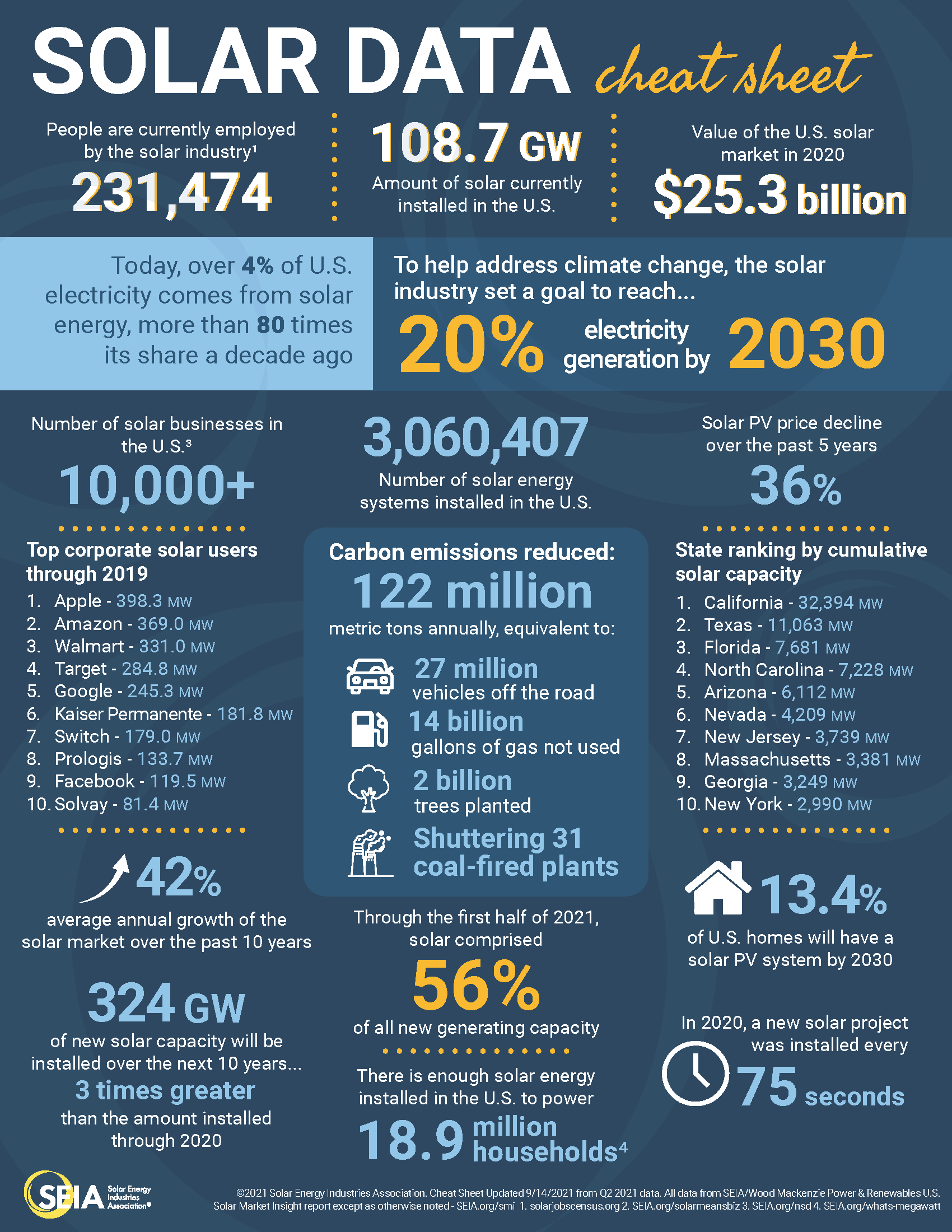





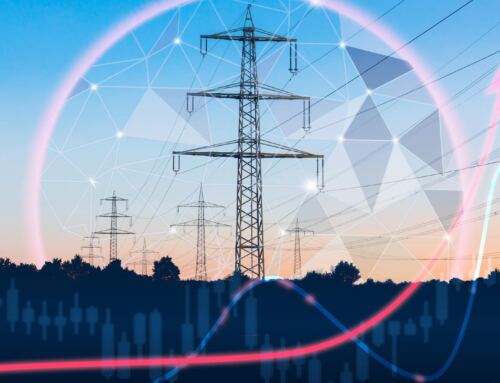
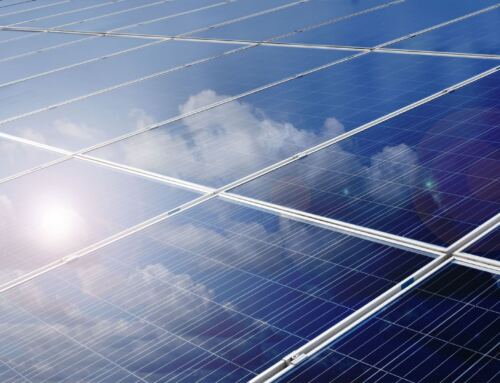
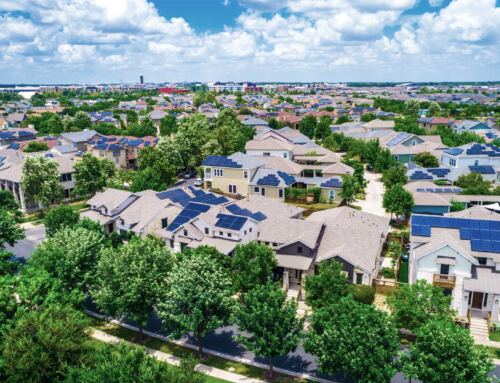
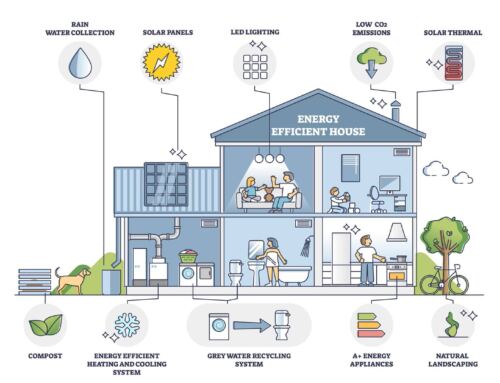
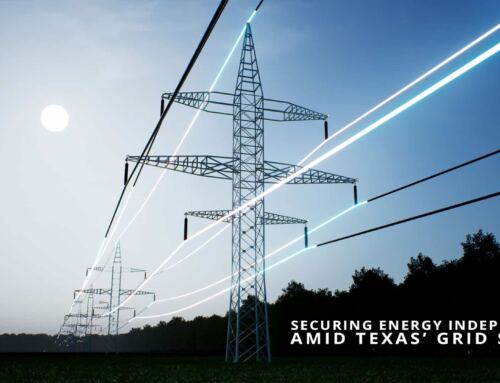
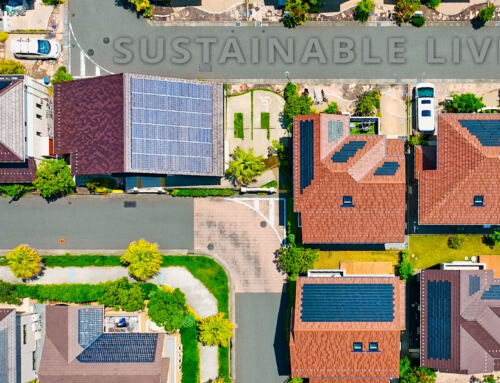




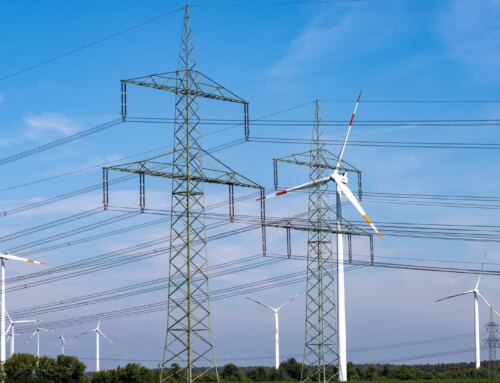

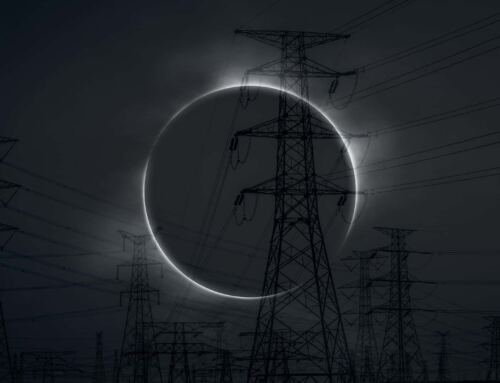
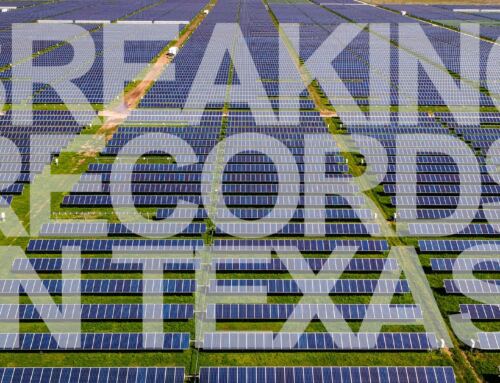
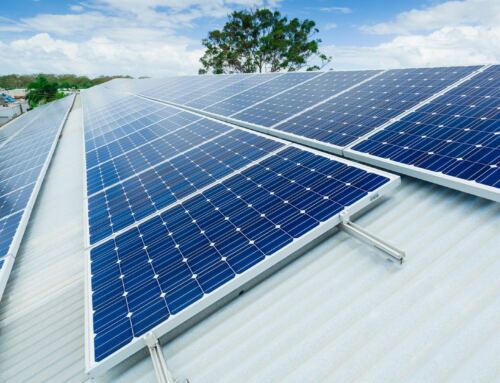
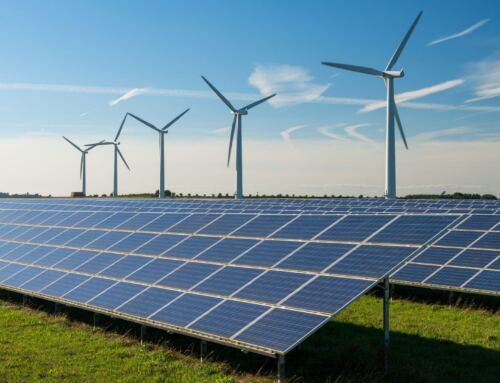

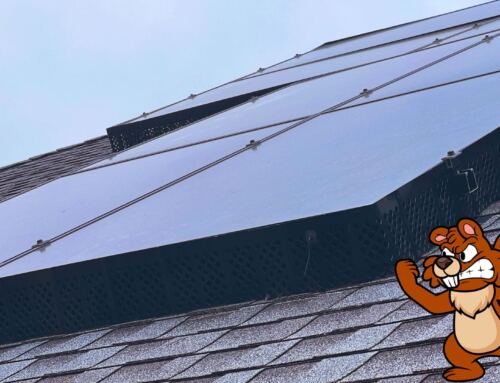


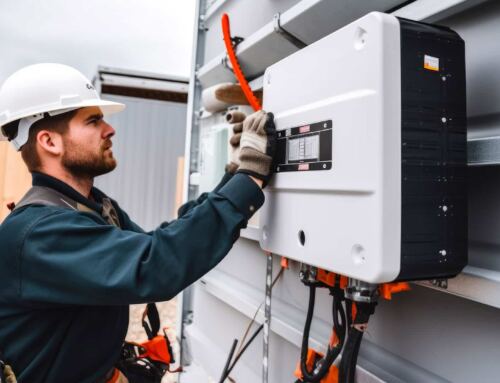
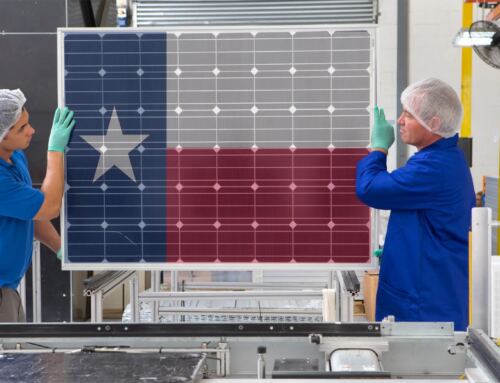
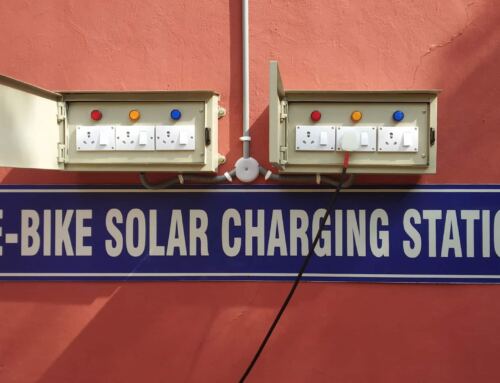

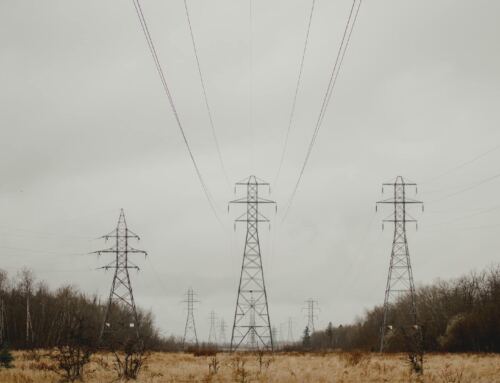
Do you lease your solar panels?
No Blake, we do not have a leasing program.
Thanks so much for the explanation of the different types of solar panels and what each does. My partner and I have been thinking about installing solar panels ever since our electricity bill went up.
Thank you for explaining how solar power is reliable. I’ve been thinking about getting solar panels for our home. It seems like it could be a good backup for our home.
It’s interesting that you elaborate on how solar panels can be utilized to reduce your home’s energy costs. My wife and I have been trying to save money on our utility bills lately, so we’re thinking about hiring a professional to install solar panels on our home this summer. I’m going to see if there’s a good provider of residential solar panel installation services in our area that we can hire.
This article effectively outlines the growing prominence of solar energy, highlighting its cost-saving potential, property value appreciation, and environmental benefits. It provides valuable insights into solar panel types and installation considerations, making it a useful resource for homeowners considering the switch to solar power.
Great post! With over two million solar installations in the US and solar accounting for 56% of new electricity capacity in early 2021, it’s clear solar is booming. For Texas homeowners, solar is a smart investment, with federal tax incentives, local rebates, and financing options making it affordable. You can expect up to a 90% return on investment through increased property value.
Thanks for sharing these insights. For new readers, going solar can lead to significant savings and a positive environmental impact.
Powering your home with solar energy offers numerous benefits, including significant energy cost savings, increased property value, and reduced environmental impact. Solar panels convert sunlight into electricity, providing a clean, renewable energy source. With advancements in solar technology, efficiency has improved, making solar panels a reliable power solution even on cloudy days. Additionally, various financing options, federal tax incentives, and local rebates make solar installations more affordable. Investing in solar energy not only ensures energy independence but also contributes to a sustainable future. An experienced installer can help maximize these benefits and ensure a smooth transition to solar power.”